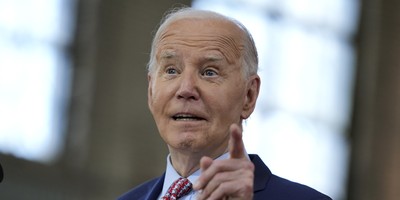Scott McClellan has learned the profound wisdom of the old Groucho Marx line about not wanting to belong to any club that would have him.
The former press secretary has written a scathing memoir about his time in the Bush administration, but nothing he says in his book, dully titled (appropriately enough) "What Happened," is as damning as the fact that he spent nearly three years as White House press secretary.
Likable, but maladroit and plodding, he was the perfect spokesman for the administration of Harriet Miers, Michael Brown and Al Gonzales. For anyone who doubted that President Bush too often valued loyalty over talent, there was McClellan stumbling through daily briefings to embody the point more eloquently than he ever could have stated it.
McClellan's book has all the inherent interest of one of his briefings. He tells of an incident that was one of his "favorite moments" from working with then-Gov. George Bush in Texas. He stumbled upon Bush making sandwiches. McClellan picks up the tale from there: "For the next twenty minutes or so we munched on the sandwiches and talked about a variety of topics, few of which had to do with politics."
No one was going to pay any attention to a book replete with such banalities, so McClellan had to "sex it up." He took the conventional anti-Iraq War case and cut-and-pasted it into his book. He says that the administration engaged in a "political propaganda campaign" in the run-up to the war, doing "a disservice to the American people and to our democracy."
If McClellan's provocative language is stripped away, what he is saying is unremarkable. In its zeal to persuade the public of the case for war, the president's team ended up "obscuring nuances and ignoring the caveats that should have accompanied their arguments." In retrospect, that's inarguably true. "However," McClellan adds, "this is not the same as saying they deliberately misled and lied."
Recommended
McClellan especially regrets the "marketing choice" prior to the war to accent Saddam Hussein's alleged WMD capabilities when Bush really wanted the Iraq War to transform the Middle East. But the two rationales weren't mutually exclusive, and McClellan inadvertently admits as much. He reports a private meeting with Republican governors where Bush was notably "forthright" and talked about both "promoting liberty" and the dire consequences of Saddam acquiring nuclear weapons.
McClellan is more compelling when he complains about his treatment during the Valerie Plame case. He maintains that Karl Rove and "Scooter" Libby made categorical denials to him of involvement in the leak. Whether that was the case or he missed subtleties in what they told him, McClellan said things from the podium about the controversy that were untrue, and no one bothered to correct him.
That would have been grounds for resigning, but McClellan stayed. It wasn't until a new White House chief of staff arrived and wanted a better press secretary that McClellan was forced out. The deep-think (and entirely commonplace) theme of his book is that Washington has a poisonous culture of the "permanent campaign." But people fighting for what they believe is more admirable than rank, unprincipled careerism.
When McClellan first met with Bush in Texas for a job interview, Bush asked why he wanted to work for him. "Because I believe in you," McClellan said. What about Bush's agenda? McClellan hastily added he believed in that, too. But he didn't in any meaningful way. He writes of the death penalty, which he defended in Texas: "I do feel significant doubts about it, much as I would later feel about the necessity of war in Iraq." But he swallowed them: "I was called on, as official spokesman, to defend a position despite inner qualms about it."
Lo and behold, here is Scott McClellan, ever the mouthpiece, spouting views that happen to suit the interests of his New York publisher and betray his foolishly loyal former boss. If he has any inner qualms, we'll never know.

























Join the conversation as a VIP Member